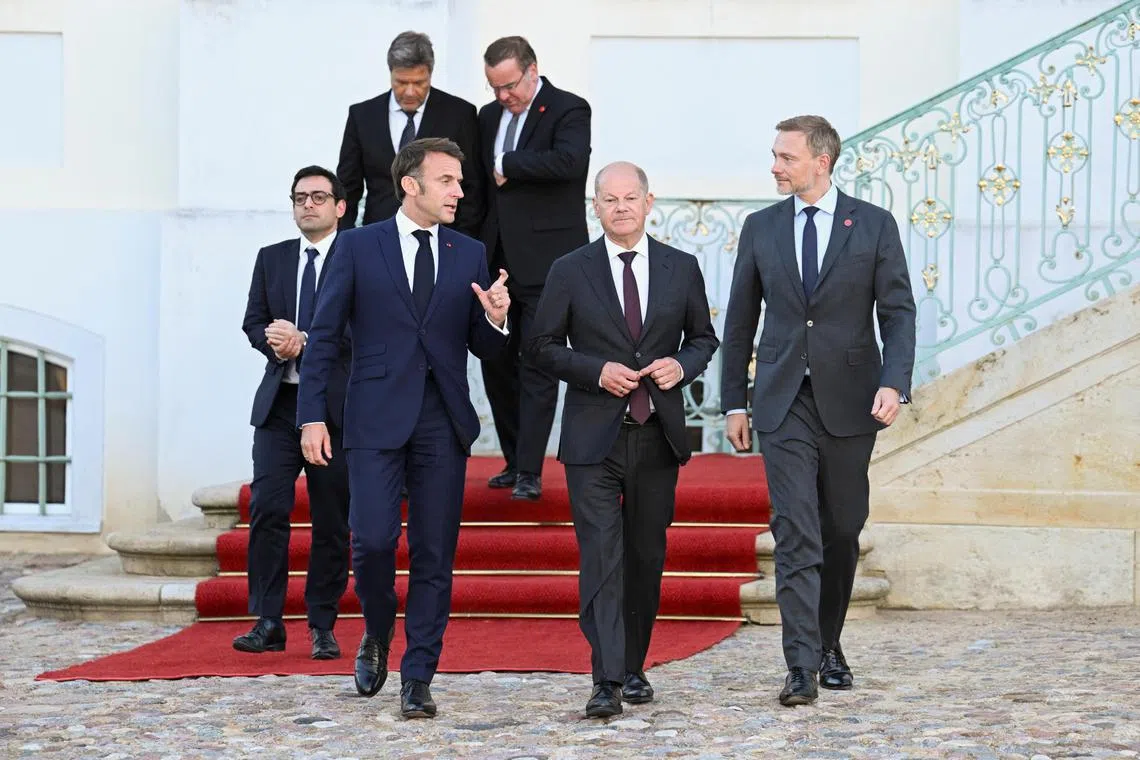French, German leaders say Ukraine allowed to strike inside Russia
Sign up now: Get ST's newsletters delivered to your inbox

(Front, from left) French President Emmanuel Macron, German Chancellor Olaf Scholz and German Finance Minister Christian Lindner meeting in Gransee, Germany, on May 28.
PHOTO: REUTERS
PARIS/BERLIN - France and Germany's leaders said on May 28 Ukraine should be allowed to hit military sites inside Russia from which missiles are being fired at Ukrainian territory, but not other targets.
Russian President Vladimir Putin warned the West earlier in the day that Nato members in Europe were playing with fire by proposing to let Ukraine use Western-supplied weapons to strike inside Russia, which he said could trigger a global conflict.
"We support Ukraine and we don't want escalation, that hasn't changed," French President Emmanuel Macron said, at a joint news conference with German Chancellor Olaf Scholz, in Meseberg, Germany.
"We think we should allow them to neutralise military sites from which missiles are fired, military sites from which Ukraine is attacked, but we shouldn't allow them to hit other targets in Russia and civilian or other military sites in Russia."
Mr Scholz said he agreed with Mr Macron and that as long as Ukraine respected the conditions given by countries that supplied the weapons, including the US, and international law, it was allowed to defend itself.
"Ukraine has every possibility under international law for what it is doing. That has to be said explicitly," Mr Scholz said.
"I find it strange when some people argue that it should not be allowed to defend itself and take measures that are suitable for this."
Over two years into the deadliest land war in Europe since World War II, as the West considers what to do about Russian military advances in Ukraine, Mr Putin is increasingly evoking the risk of a global war, while Western leaders play it down.
Nato Secretary-General Jens Stoltenberg told the Economist that alliance members should let Ukraine strike deep into Russia with Western weapons, a view supported by some European members of the transatlantic alliance though not the US.
In Germany too, there is some resistance to the idea, with fears of an escalation into a wider conflict likely to play a role in upcoming local and state elections in the formerly communist east of the country.
Mr Scholz has refused to provide Kyiv Germany's long-range Taurus missiles, which could potentially reach Moscow. REUTERS


